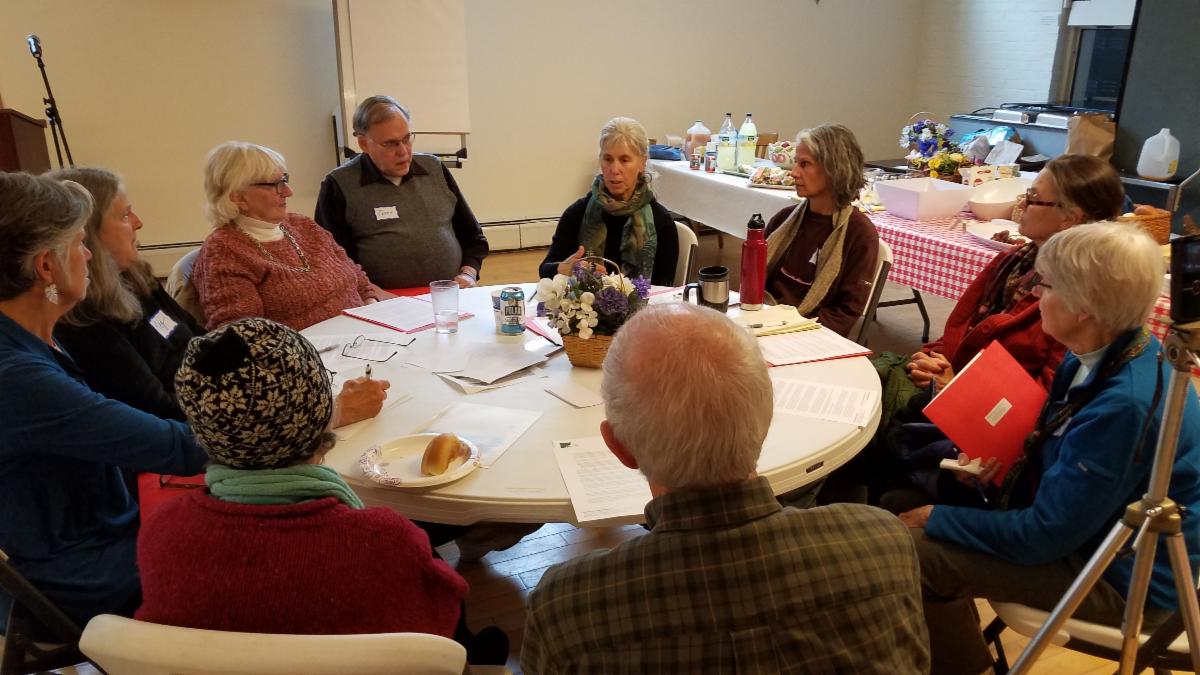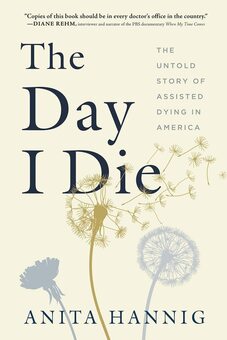|
Like many Vermonters, I have been distraught over the U.S. Supreme Court decision to reverse Roe vs Wade. As a lawyer, I am keenly aware that this reversal of a half-century of legal precedent is tied to legal and political theories that pose broader threats to our rights to bodily autonomy. We are not immune to threats here in Vermont. In 2016, PCV intervened in a lawsuit brought by the Christian Medical and Dental Association (CMDA) claiming that Vermont doctors who have religious objections should not have to discuss medical aid in dying with their patients. The lawsuit was dismissed, but the CMDA continues to look for ways to limit access to medical aid in dying across the country. In California, they sued claiming that doctors who object to medical aid in dying should not have to transfer patient medical records to a new doctor who stands ready to help that patient. Medical aid in dying laws and the laws requiring that an individual's advance directives be followed are grounded in the concept of bodily autonomy – the idea that people have the right to determine how to care for their own bodies and what decisions best serve their lives. With the recent Supreme Court case on abortion, we are concerned that aid-in-dying opponents will be emboldened to attack end-of-life choice. These people already have tied their opposition to abortion together with end-of-life choice. For example, in thirty states (not Vermont), when a person is pregnant, her advance directives are void by state law. The basic right to bodily autonomy is at stake. We view attacks on patient-directed care as potentially undermining a patient’s agency in a wide range of medical decision-making. At PCV we are watching events at the national level, and we are prepared to act if end-of-life choice is threatened in Vermont. PCV stands ready to defend our right to bodily autonomy. Or mail a check to: Patient Choices Vermont PO Box 671 Shelburne, VT 05482  PCV Welcomes former State Senator Claire Ayer to the Board of Directors Claire Ayer brings extensive political and medical practice expertise to the PCV team. She was instrumental in the adoption of Act 39 in 2013, when she served as Chair of the Senate Committee on Health and Welfare. Ms. Ayer has served for the past year on the PCV Advisory Board where she provided strategic advice on educating stakeholders about the improvements that were needed in Act 39. We look forward to her closer involvement in PCV's mission. Bring a Workshop to Your Community PCV stands solid in our commitment to educate across all sectors of our community. PCV workshops help individuals to have knowledgeable discussions with their medical teams about end-of-life choices. Our education for medical professionals emphasizes the importance of providing patients with full information about their options, including medical aid in dying and how to engage patients in decision-making. S.74 Education PCV has been making sure that members of the community are up-to-date on the new provisions of S.74, improving Act 39. We recently:
"Books about medical aid in dying are beginning to appear with frequency," says PCV Board Member Susan Gillotti. "It’s as if everyone now--doctors and patients alike--has recognized that we can’t keep pretending that we don’t die. Anita Hannig is a cultural anthropologist at Brandeis University where she teaches classes on the cultural dimensions of medicine and the end of life. She spent five years in Oregon and Washington meeting families in living rooms and hospital suites, listening to proceedings in courtrooms and at public hearings, and visiting state archives. For eight months, she worked as a hospice volunteer and accompanied patients during the final weeks of their lives." PCV Board Member Susan Gillotti Reviews The Day I Die by Anita Hannig Hannig writes movingly of how medical aid in dying can soften grief. It allows time for reconciliation with loved ones. “Assisted dying,” she writes, “is much larger than swallowing a lethal dose of medication: it changes how we live, how we die, and how we envision our future…It introduces new possibilities for human beings to direct the end of their lives…(and) to think about how they want to leave things with their loved ones, repair relationships, and plan for a personalized departure… Loved ones didn’t feel as blindsided.” Click to read the full review... Comments are closed.
|
Categories
All
Archives
July 2024
|
Proudly powered by Weebly

 RSS Feed
RSS Feed